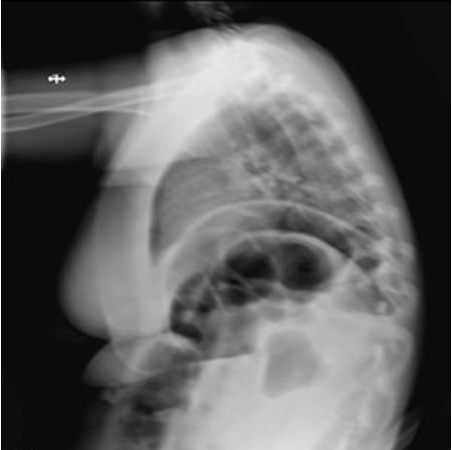Rad Technique 1
1/39
There's no tags or description
Looks like no tags are added yet.
Name | Mastery | Learn | Test | Matching | Spaced | Call with Kai |
|---|
No analytics yet
Send a link to your students to track their progress
40 Terms
Technique
systematic procedure to produce a high-quality radiograph.
Technique includes being able to…
pick out the right factors to make an x-ray beam that’ll adequately penetrate the body part and provide the appropriate level of blackening (density) and subject contrast on the image
Exposure Factors governing density…
Kilovoltage (kV)
Milliampereseconds (mAs)
Distance

Kilovoltage (kV)
force that accelerates the electrons from cathode to anode
energy or quality of the x-ray beam is determined by the kV selected
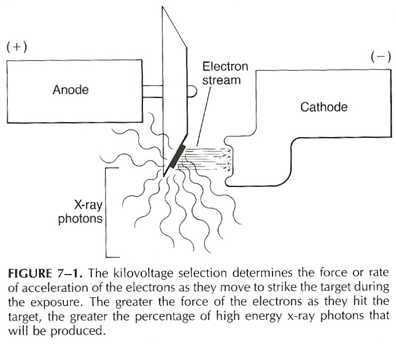
X-rays travel through matter in a…
wave-like fashion aka Wavelength
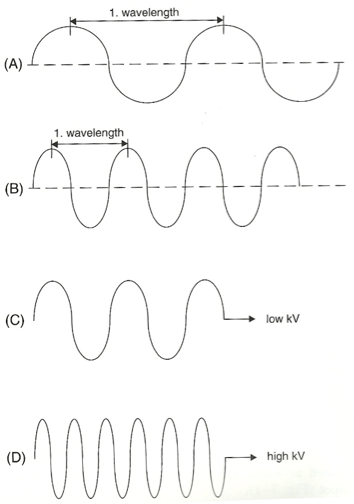
Wavelength
the distance from one crest of the wave to the crest of the next wave
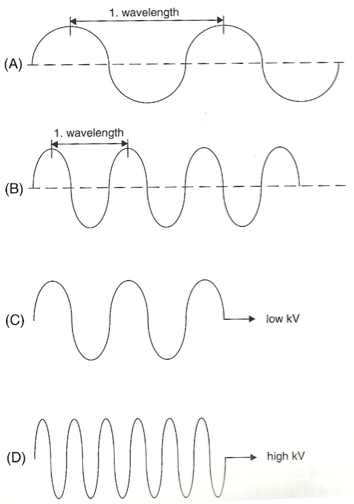
An increase in kV will produce…
x-rays photons of shorter wavelength and high energy levels
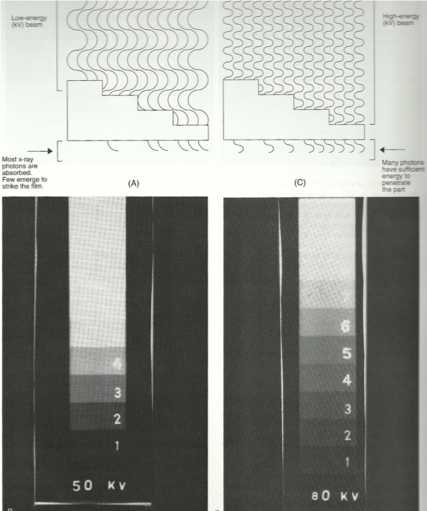
Penetrometer

As kV increases, so will its ……… ability
penetration ability
As kV increases, so will its penetration ability, which increases amount of…
radiation reaching the image receptor, producing more density on the image
kV DOES NOT produce…
…more x-ray photons! It is the increase in energy that allows more x-rays to penetrate the body part, producing increased blackening (density) of the image
Fifteen Percent Rule
Increase in kV by 15% will result in doubling the amount of overall blackening or density on the image.
Decrease in kV by 15% will reduce the overall density of the image by one half
15% rule is a nonlinear and nonproportional relationship
It serves the technologist as a practical tool when changes in kV are necessary in order to control the amount of exposure to the image
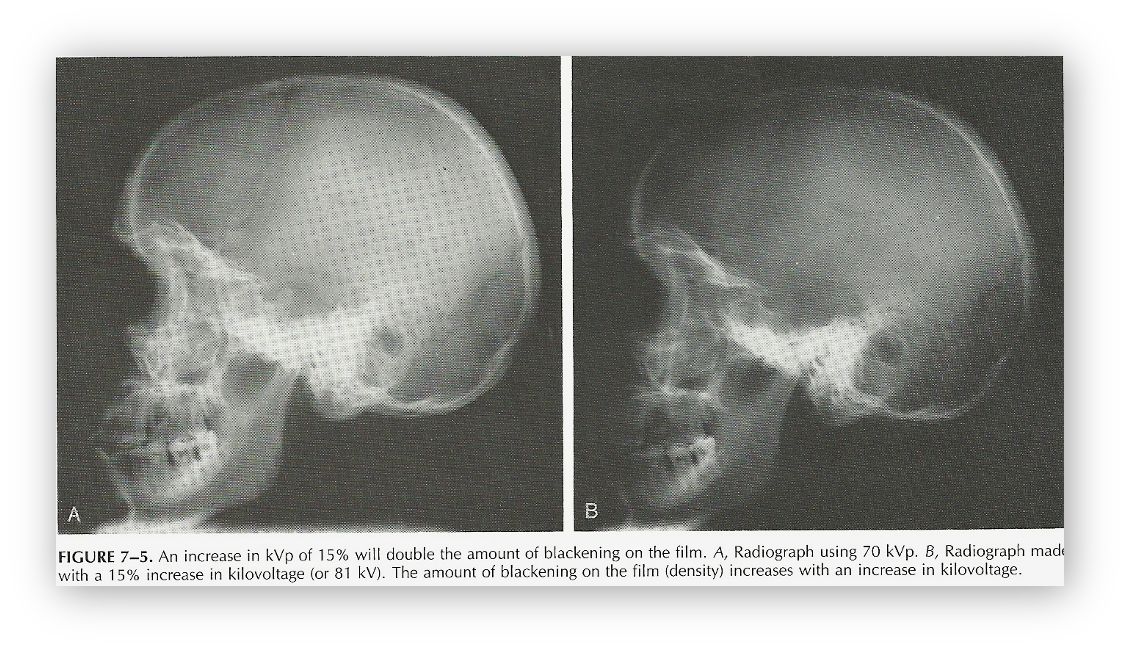
Caution must be used when using kV to decrease density bc…
significant reduction in kV may result in x-ray energy inadequate to penetrate the body part of interest
Penetration of the Part means…
x-ray photons have sufficient energy to pass through the part and emerge as remnant radiation
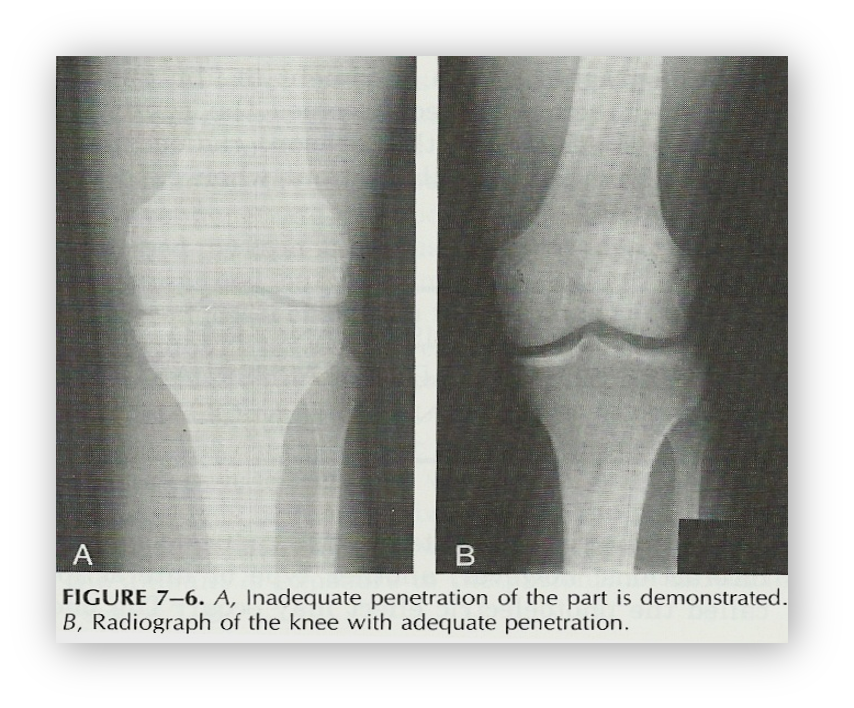
Below 60 kV may not be adequate for part penetration…
fine markings in skeletal tissue would not be visible and hairline fractures would be missed
kV is NOT the primary choice for…
controlling density on the image
kV selected based on average body part thickness…
Chest 110 kV
Abdomen 70 kV
Upper extremity 60 kV
•kV is a factor in the production of…
scatter radiation
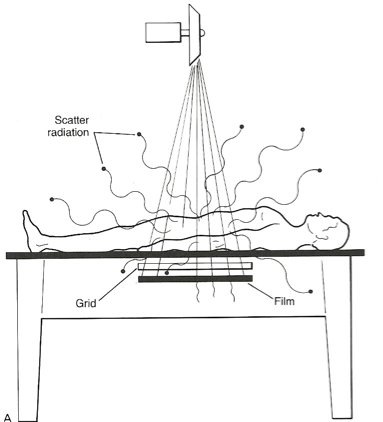
As x-ray photons strike the body part, especially with higher kV’s…
the x-ray photons undergo a change in direction.
X-ray photon travel in a direction different from its original “straight-line” path
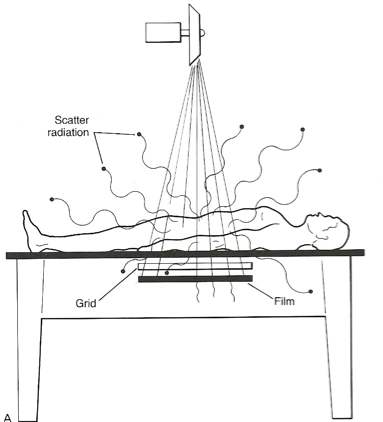
Scatter radiation exits the body traveling in…
many directions with different energy levels
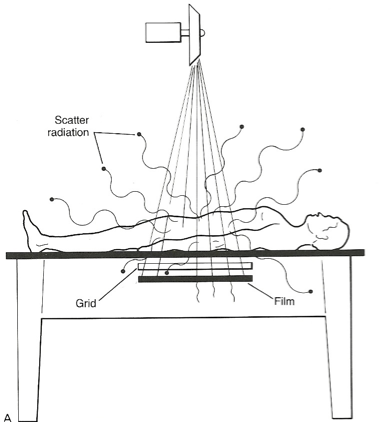
Scatter radiation is a danger…
to the patient and the technologist
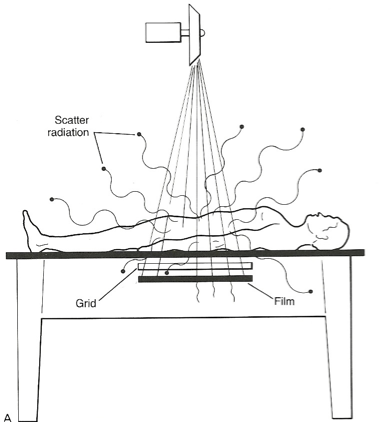
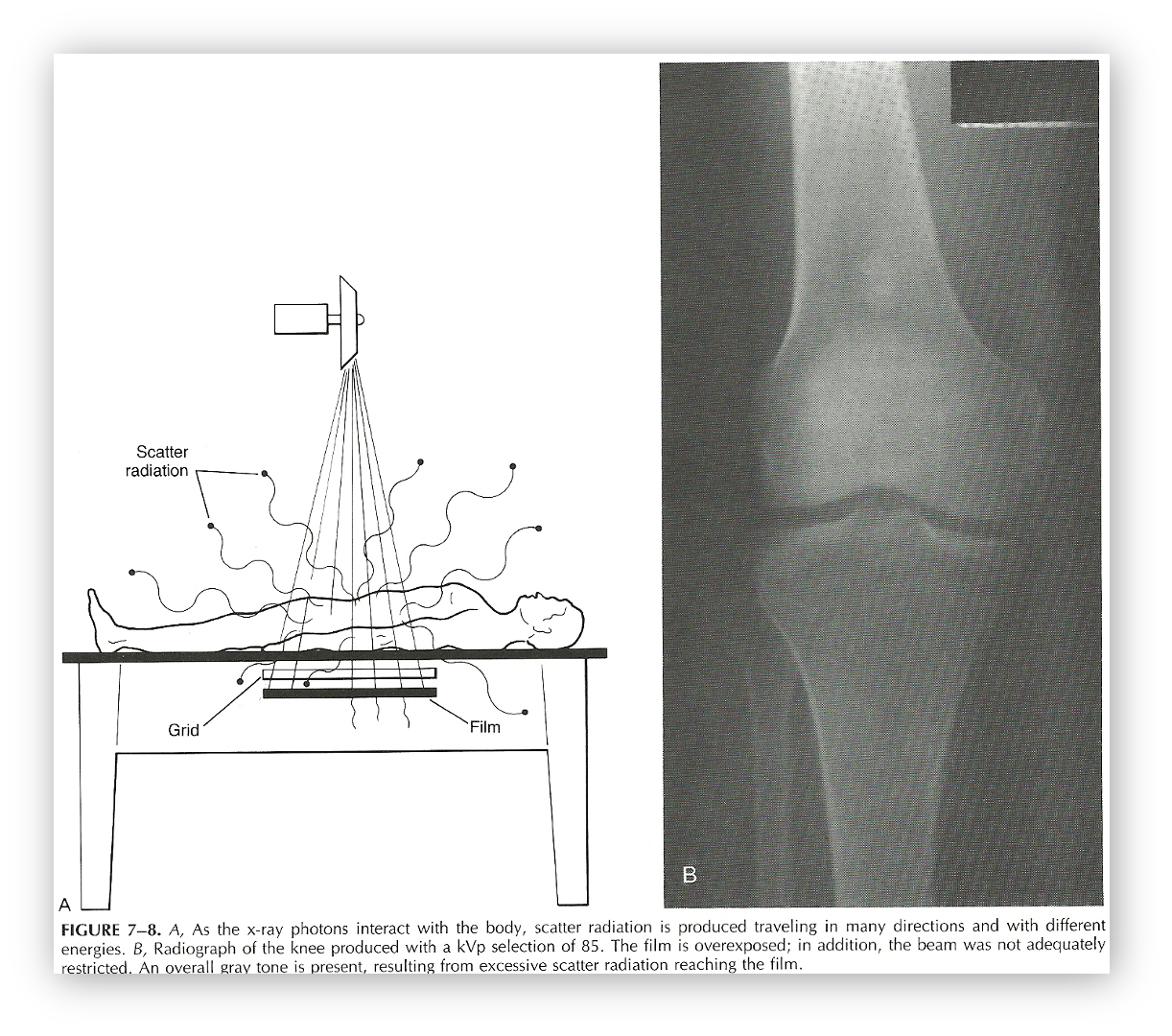
Scatter radiation is…
detriment to image quality
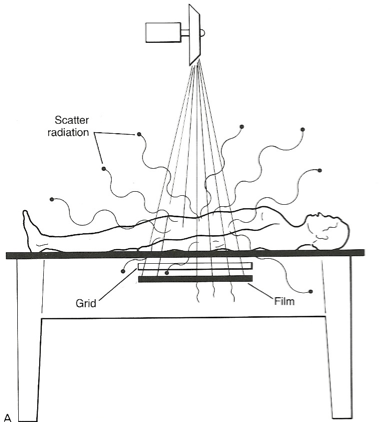
Higher kV means increased…
scatter radiation, fog (unwanted density) on image
Lower kV means not enough…
penetration and most of the radiation is absorbed by the patient
Milliamperes (mA)
controls the current flow to the cathode filament at the time of exposure
thermionic emission
As mA is increased, filament temperature rises increasing the number of electrons released
An increase in mA will increase the number of…
x-ray photons in the primary beam (quantity)

A doubling of mA will double…
radiographic density
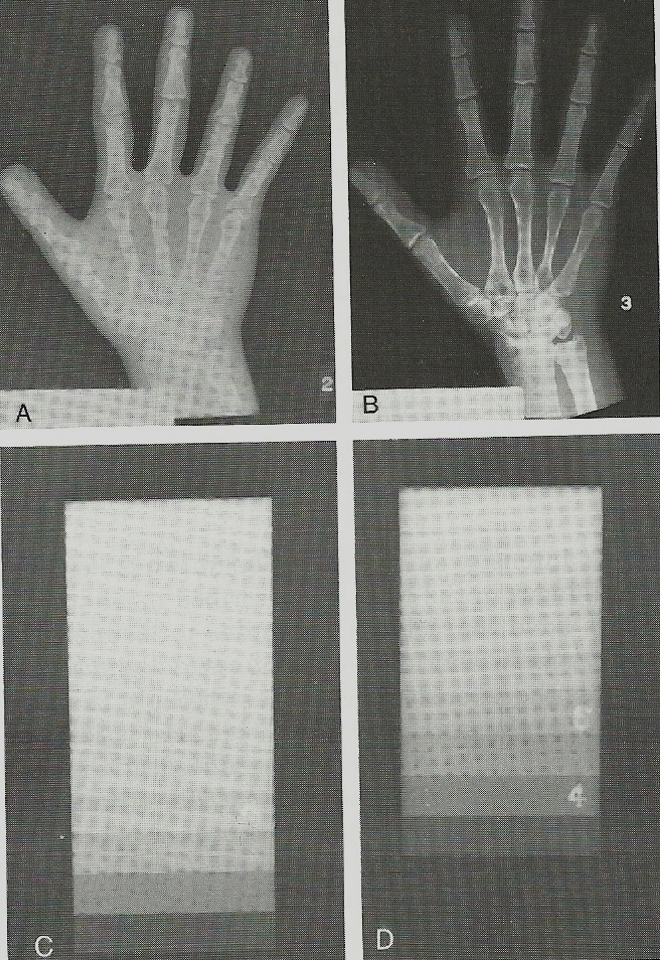
The relationship of mA selected and overall image density is proportional
If the mA is doubled from 200 to 400, the amount of density is also doubled
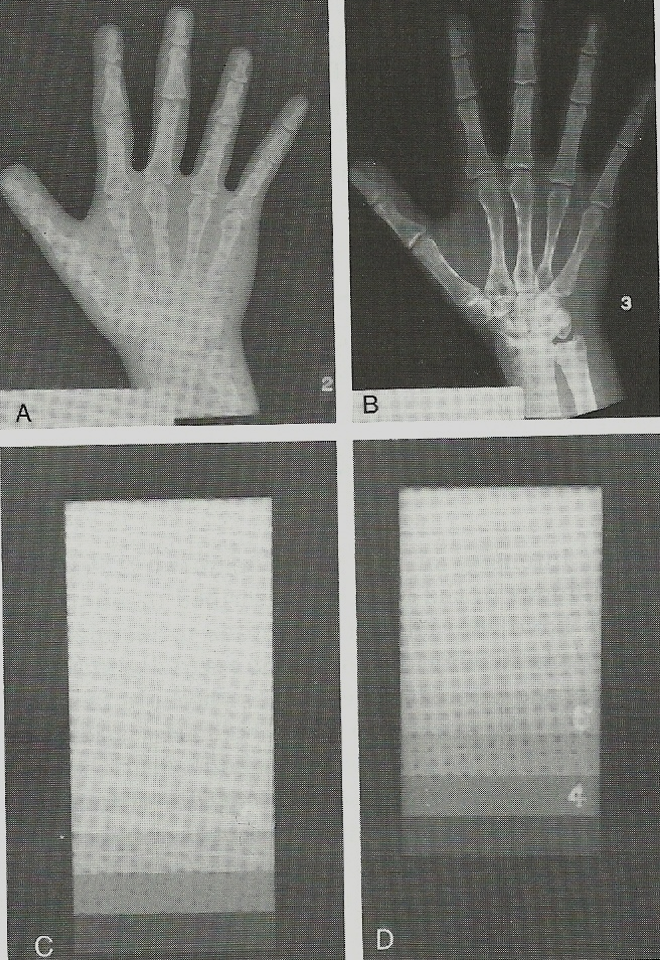
A minimal change in mA of …. is needed to visually see a change in density
30-35%
mA has […] […] to the penetrating ability of the x-ray photons, therefore…
no relation, does not affect scatter radiation
An increase in mA will […] the amount of…
increase, exposure absorbed by the patient
Time (S)
factor that controls the length of the exposure
Milliamperes and time are combined and recognized as a single quantitative factor…
(mAs) milliampereseconds
An increase in mAs, increases the…
number of photons exposing the image receptor

kV and mAs Relationship
A decrease in kV by 15% may be compensated for doubling the mAs; or an increase in kV by 15% may be compensated for by decreasing the mAs by half
indicates that blackening (density) of the image will remain constant as long as the total energy (total mAs) exposing the image receptor is constant
reciprocity law
Time, like mA, has […] on the…
no effect, penetrating ability of the x-ray photons
Short exposure times are necessary to prevent…
patient motion during exposure, which is detrimental to image quality
